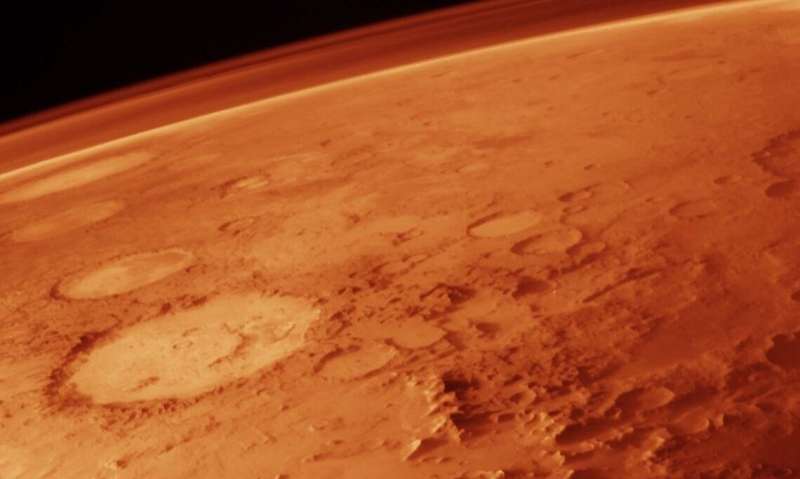Temperature-adaptive charging protocol could boost lithium battery lifespan for Mars exploration

Gaby Clark
scientific editor

Robert Egan
associate editor

A research team led by Prof. Tan Peng from the University of Science and Technology of China (USTC) of the Chinese Academy of Sciences has revealed the temperature regulation mechanism of lithium-Mars gas batteries (LMGBs), providing a theoretical foundation for the design of next-generation deep space exploration energy batteries. The study was published in .
Mars has a complex natural environment, including multiple gases and severe temperature fluctuations. LMGBs, due to their ability to directly generate electricity on Mars, are considered a power supply technology for future Mars bases. However, the complexity of the battery's reaction path under a wide temperature range, together with the ease of interface failure, limits their application.
Researchers revealed that temperature dominated battery performance by regulating the symmetric competition between two-electron and four-electron processes and the solid products growth modes. Also, at low temperatures, the key factor for capacity decay of LMGBs was the interface passivation caused by excessive amorphous carbon.
Furthermore, researchers noted that temperature could drive the switching of reaction paths and the reconstruction of interfaces. As the temperature increased, the battery discharge reaction switched from the four-electron path that produced solid carbon (4Li⁺+3CO₂+4e⁻→2Li₂CO₃+C) to the two-electron path that generated gaseous carbon monoxide (2Li⁺+2CO₂+2e⁻→Li₂CO₃+CO), with the reaction kinetics increasing by two times.
During the discharge reaction, researchers also found that high temperatures stimulated the generation of highly active substances such as singlet oxygen (1O2), enhancing the decomposition efficiency of lithium carbonate (Li2CO3). As Li2CO3 grew in isolated three-dimensional structures, and the concentration of carbon dioxide at the interface was four times higher than at low temperatures.
Based on the findings above, researchers presented a temperature-adaptive charging protocol, which utilized the high temperatures during the day to trigger efficient decomposition modes, and the low temperatures at night to initiate protective slow-charging strategies.
According to the protocol, the power of the battery can be improved by suppressing the generation of amorphous carbon and optimizing the morphology of solid products, enabling the Mars rover's continuous operation at night.
More information: Xu Xiao et al, Deciphering Temperature‐Governed Processes of Lithium‐Mars Gas Batteries, Advanced Functional Materials (2025).
Journal information: Advanced Functional Materials
Provided by University of Science and Technology of China
















